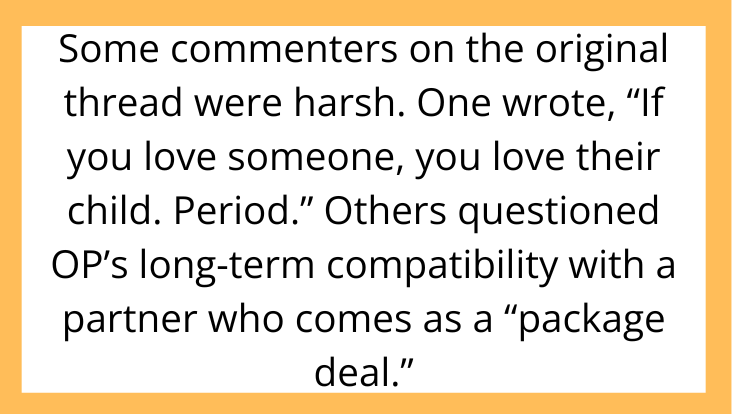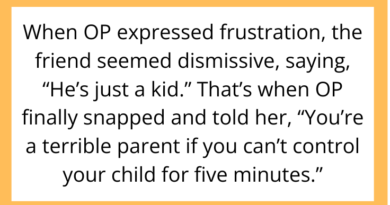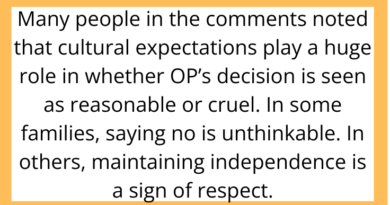AITAH for Not Wanting to Include My Partner’s Child in My Birthday Celebration?
Birthdays are often seen as a time for personal joy and being surrounded by the people you love—but what happens when the guest list becomes a source of tension?
A recent post on r/AITAH posed a tough question: Am I the bad person for asking my partner not to bring their child to my birthday dinner? The story quickly ignited a firestorm of comments, with users split on whether setting such boundaries is fair—or just plain selfish.

In this blog post, we’ll explore the balance between blended family dynamics, personal boundaries, and emotional sensitivity—especially when special occasions are involved.
The Scenario: Setting Boundaries for a Personal Milestone

The original poster (OP) shared that they had planned a quiet, adults-only birthday dinner with close friends and family. Their partner has a six-year-old daughter from a previous relationship, whom OP generally gets along with—but for this one evening, they wanted an adult atmosphere without kids.
When OP gently requested that the partner find a babysitter for the evening, the partner was offended, calling it exclusionary and “a red flag.” Tension escalated when the partner chose not to attend the dinner at all, saying they wouldn’t go anywhere their child wasn’t welcome. OP was left feeling unsupported on their own birthday—and confused about whether they were in the wrong.
Navigating Blended Families: Where Is the Line?

Blended families come with beautiful opportunities—but also complex emotional terrain. Here’s why situations like this can be so emotionally charged:
-
Inclusion vs. individuality: Wanting space for yourself doesn’t automatically mean rejection of someone’s child.
-
Parental instincts: Many parents see “no kids” as an indirect criticism or a slight to their parenting.
-
Occasions carry weight: Birthdays are emotional markers. Feeling unsupported can hurt more than usual.
In this case, OP wasn’t asking to exclude the child from family life—just from one adult-focused gathering.
Is It OK to Say “No Kids” for Personal Events?

Short answer: yes—but with care. Here’s how to set that boundary respectfully:
-
Communicate early and kindly: Give your reasons clearly and calmly, well in advance.
-
Acknowledge the sensitivity: Say something like, “I love spending time with her, but I really want this one evening to feel relaxed and adult-focused.”
-
Offer alternatives: Suggest a second, kid-friendly celebration to balance the scales.
Boundaries aren’t rejection—they’re clarity. And in adult relationships, clarity is kindness.
Why the Backlash?
Some commenters on the original thread were harsh. One wrote, “If you love someone, you love their child. Period.” Others questioned OP’s long-term compatibility with a partner who comes as a “package deal.”
But other voices came to OP’s defense: “You’re allowed to want one night just for yourself.” Another user added, “Respecting your boundaries should matter just as much as accommodating theirs.”
So who’s right?
It Comes Down to Values—and Communication

At the heart of this conflict is a deeper question: Are you and your partner aligned on emotional priorities and respect for each other’s needs? If your idea of self-care or celebration clashes fundamentally with your partner’s values, it may be time for a conversation about compatibility.
However, if this was a one-off ask for personal space and it sparked this much tension, that too is revealing. Relationships require compromise—but not at the cost of feeling unheard.
Final Thoughts: You’re Not the Bad Person for Wanting Personal Space

Refusing to include your partner’s child in one birthday event doesn’t make you heartless—it means you value personal time and clarity around your needs. What matters most is how you communicate your intentions, how your partner receives them, and whether both sides can compromise with mutual respect.
Remember:
-
You’re allowed to define your own joy.
-
One boundary doesn’t mean rejection.
-
Relationships thrive when needs are voiced—not buried.



